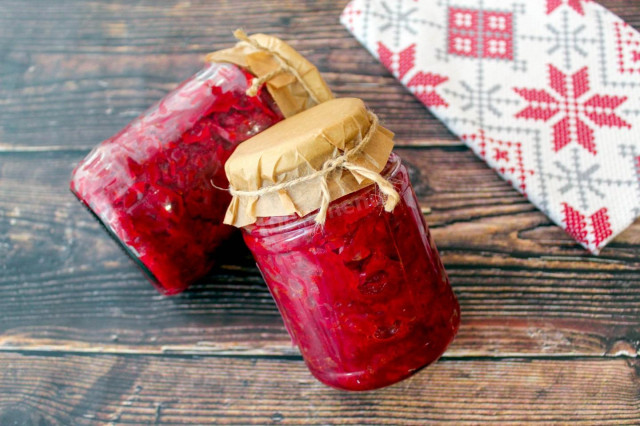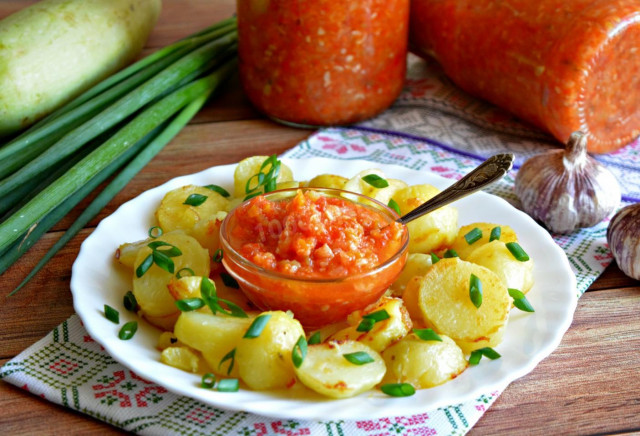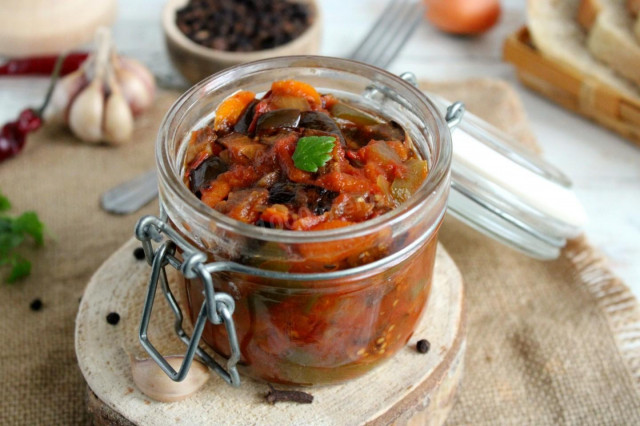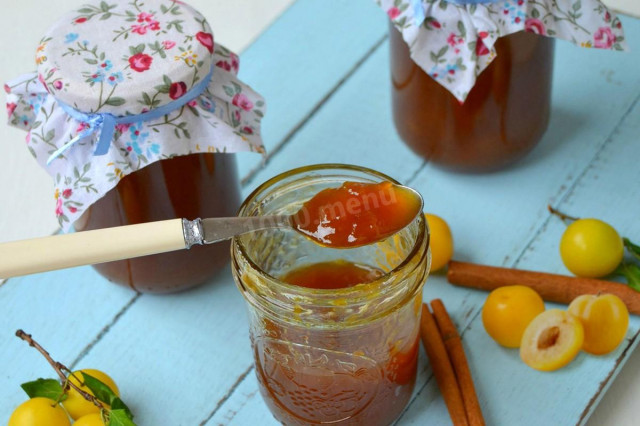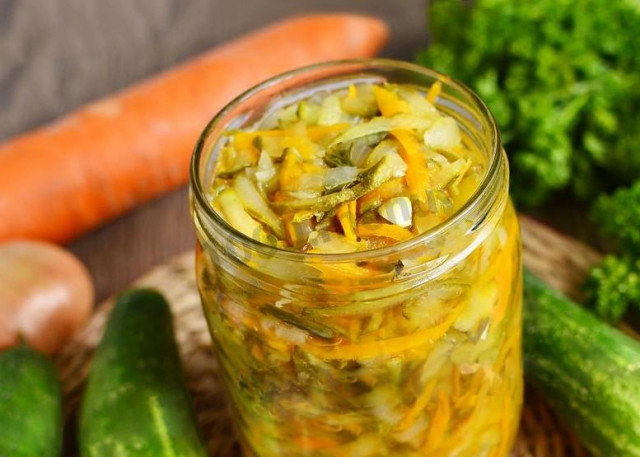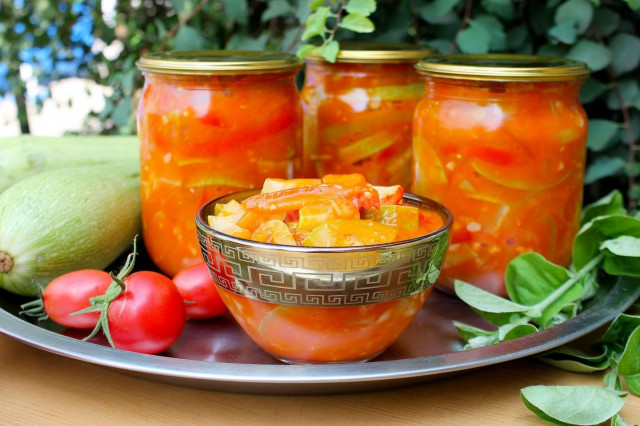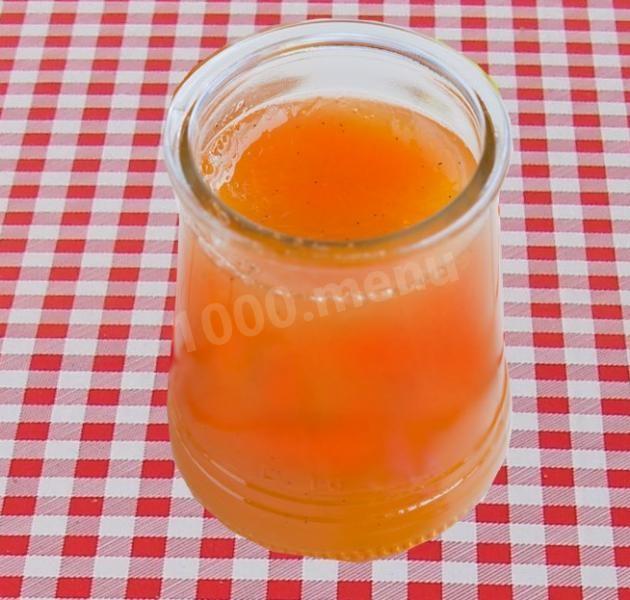Composition / ingredients
Step-by-step cooking
Step 1:
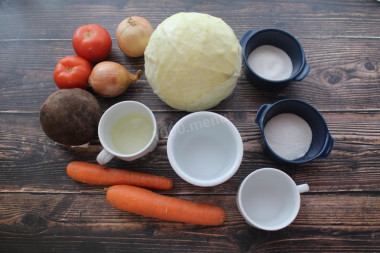
How to make a simple borscht for the winter? Prepare the products. Rinse all vegetables thoroughly under running water.
Step 2:
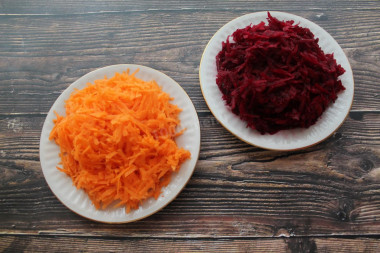
Peel beets and carrots with a vegetable peeler and grate them on a coarse grater.
Step 3:
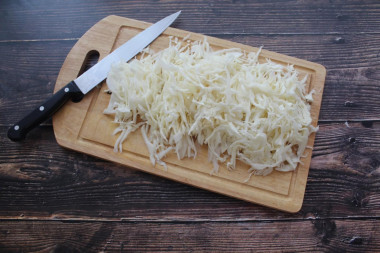
Chop the white cabbage with a sharp knife or with a special grater.
Step 4:
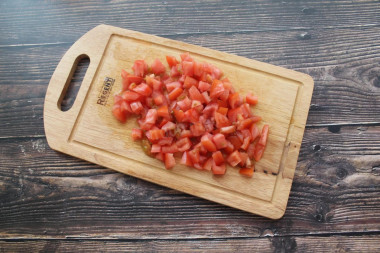
Remove the stalks from tomatoes and cut into medium cubes. You can remove the skin from them beforehand. How easy is it to peel tomatoes? Wash them, make criss-cross incisions on top with a sharp knife. Put it in boiling water for 1-2 minutes. Remove, cool slightly and remove the skin.
Step 5:
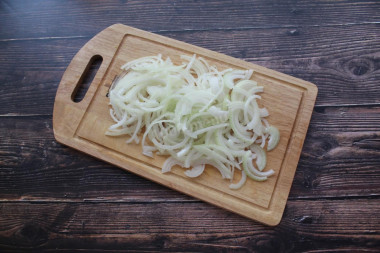
Peel the onion from the husk. If the bulbs are large, then cut them into half rings, if the onion is small — rings. To avoid irritating the mucous membrane of the eyes when slicing onions, rinse the onion and knife with cold water. The cutting board will not absorb the unpleasant onion smell if you rub it with a piece of lemon before slicing.
Step 6:
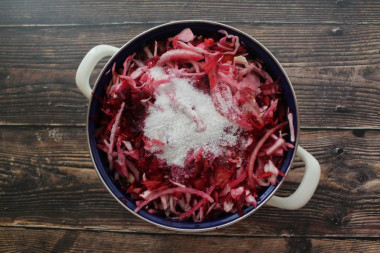
Take a large saucepan and put all the prepared vegetables into it. Add salt and sugar, pour in vegetable oil and water. Put a pot of vegetables on the fire and cook the vegetables for 20 minutes over medium heat, stirring them from time to time so that they do not burn.
Step 7:
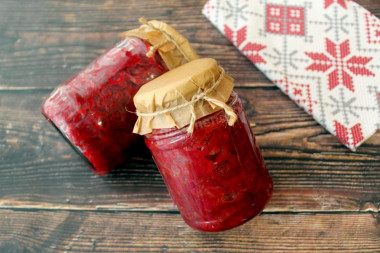
Sterilize the jars and lids in advance in any convenient way: in the oven, steamed, in water or even in the microwave. A minute before the end of cooking, pour in the vinegar, mix and immediately put the vegetable stock into sterilized jars. Roll up or twist them with sterile lids. Cool the jars upside down under a blanket. The workpiece is perfectly stored even at room temperature. Enjoy your meal!
When it's time to boil soup with such a preparation, just add it to the meat broth with already boiled potatoes and cook it for another 5 minutes so that the soup boils a little. Such a billet will help to cook soup very quickly when there is very little time.
From this amount of blank, approximately 1.2 liters of blank are obtained. It is difficult to calculate the number of servings, since housewives cook soups that are completely different in density, and all housewives also have different pots for making soup in volume.
There are other options for preparing this preparation for the winter, but the main ingredient is still always beetroot. Therefore, it is better to choose it especially carefully. If possible, it is better to use your home-grown beets.
If you take vegetable or mushroom broth, the soup is suitable for eating in the post.
How to calculate the number of cans, why banks explode and how to avoid it, as well as secrets and life hacks, read the article about preparations for the winter.
Vinegar in recipes, unless otherwise specified by the author, is added by default at a concentration of 9%.
How to choose the perfect pot for soup, porridge or pickling cucumbers read the article about pots.
Caloric content of the products possible in the composition of the dish
- Onion - 41 kcal/100g
- Tomatoes - 23 kcal/100g
- Beetroot - 40 kcal/100g
- Dried beetroot - 278 kcal/100g
- Boiled beets - 49 kcal/100g
- Carrots - 33 kcal/100g
- Dried carrots - 275 kcal/100g
- Boiled carrots - 25 kcal/100g
- Granulated sugar - 398 kcal/100g
- Sugar - 398 kcal/100g
- Wine vinegar (3%) - 9 kcal/100g
- Vinegar 9% - 11 kcal/100g
- Balsamic vinegar - 88 kcal/100g
- Apple vinegar - 14 kcal/100g
- Vinegar - 11 kcal/100g
- Vegetable oil - 873 kcal/100g
- Salt - 0 kcal/100g
- Water - 0 kcal/100g
- White cabbage - 28 kcal/100g
- Boiled white cabbage - 21 kcal/100g

